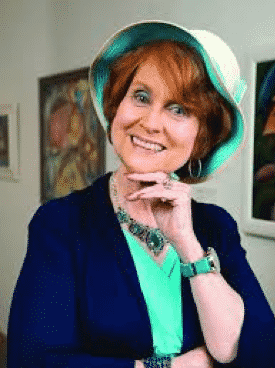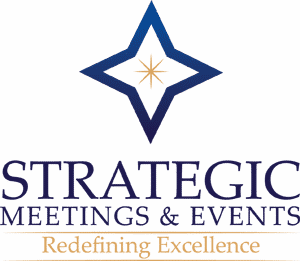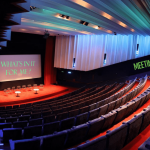What’s Trending in the Speaking World?
By Christy Lamagna, CMP, CMM, CTSM
Event strategists always start with the end in mind. They know the core principle in strategic planning is that all actions and decisions must support the event goal. When it comes to choosing speakers, it can be easy to get distracted by celebrity status or choose topics that may be personally interesting but not right for your target audience. Engaging the professional skills of a speaker’s bureau allows you to add an expert to your team at no cost to you, saves time and will potentially introduce you to people and topics you may not have otherwise found.
 This is the second in a three-part series recapping a conversation I had with Sue Falcone, Founder and CEO of Remarkable! A Speakers Bureau (you can see Sue’s smiling face in the photo shown above). Our goal was to explore how planners can strategically build relationships with speaker’s bureaus. If you missed the first installment and want to see the first article, please click here.
This is the second in a three-part series recapping a conversation I had with Sue Falcone, Founder and CEO of Remarkable! A Speakers Bureau (you can see Sue’s smiling face in the photo shown above). Our goal was to explore how planners can strategically build relationships with speaker’s bureaus. If you missed the first installment and want to see the first article, please click here.
Christy: What changes are you noticing when planners call to book a speaker?
Sue: At one time, my relationship was exclusively with planners operating in a silo, meaning there were no other people for them to run ideas by or to get suggestions from. Now planners are part of a much larger team. Having more people making the decision translates to needing to provide more options as each person has an opinion or vision on the topic and/or presenter needed. I once shared three potential speakers for consideration before someone was selected. Now I find myself presenting up to eight candidates before a decision is made. As a bureau that is focused on helping clients meet their goal, it’s crucial to adapt to their changing needs and timeline to provide the best service possible.
Christy: What is one thing everyone should know when booking a speaker to get the best fit?
Sue: As is the case with all things strategic, the goal is the key. First, I need to know what the speaker is expected to accomplish. Then I find out what the necessary audience takeaways and outcomes are. Not everyone can put their goals into words, so I created a detailed questionnaire to help the process. Sometimes people know how they want the audience to feel after hearing the message but can’t articulate what the message itself should be. We specialize in finding and delivering what you ask for and sometimes even what you don’t know how to ask for!
Christy: I’ve noticed lead times to plan are getting significantly smaller. Are you seeing that too?
Sue: Absolutely! We are getting requests with very short time frames for the search to be done yet the same level of quality is expected.
Christy: In an ideal world, how far in advance should planners start looking for a speaker?
Sue: After the event goal is established and a budget is confirmed, the speaker search should begin. The speaker is often the main draw, so the process shouldn’t be rushed. To do the job correctly, it takes a lot of time to search the options before we can propose the perfect match. We need to find speakers who match not just the topic’s parameters but are also a good fit for the audience/corporate culture, have the right personality, attitude, and of course, price. We need it to be the right fit on all counts or it doesn’t work.
Christy: Are you finding speakers are becoming more flexible in tailoring their topics to the audience?
Sue: I’ve booked over 3000 events and work to make each experience custom to the client’s needs. That includes making sure speakers are willing to adjust their content based on who will be listening to them. Today’s audiences consume tremendous amounts of content daily and are incredibly savvy. They will not accept “canned” presentation. One size does not fit all.
Christy: It seems that this is part fact-based and part intuition in terms of pairing speakers to audiences. Is that right and if so, how do you make that work?
Sue: When I am first contacted to provide a speaker, I gather detailed information from the client, so I have the background I need. Like I said, it’s not just the topic, the personality and style have to be a good fit. I do my homework in advance and get a sense of who the hiring organization is. I get a sense of their culture, their expectations, what has and hasn’t worked for them in the past and what their goal is. That way when I pick up the phone, I know who I’m looking for and what we need to achieve.
Additionally, my speakers must complete a comprehensive questionnaire before signing with me. This gives me a wealth of information at my fingertips, which saves time, avoids confusion or miscommunication and allows me to be the best at what I do.
Next month, Sue and I finish our conversation, during which we discuss, among other things, how to build a partnership with a bureau.





